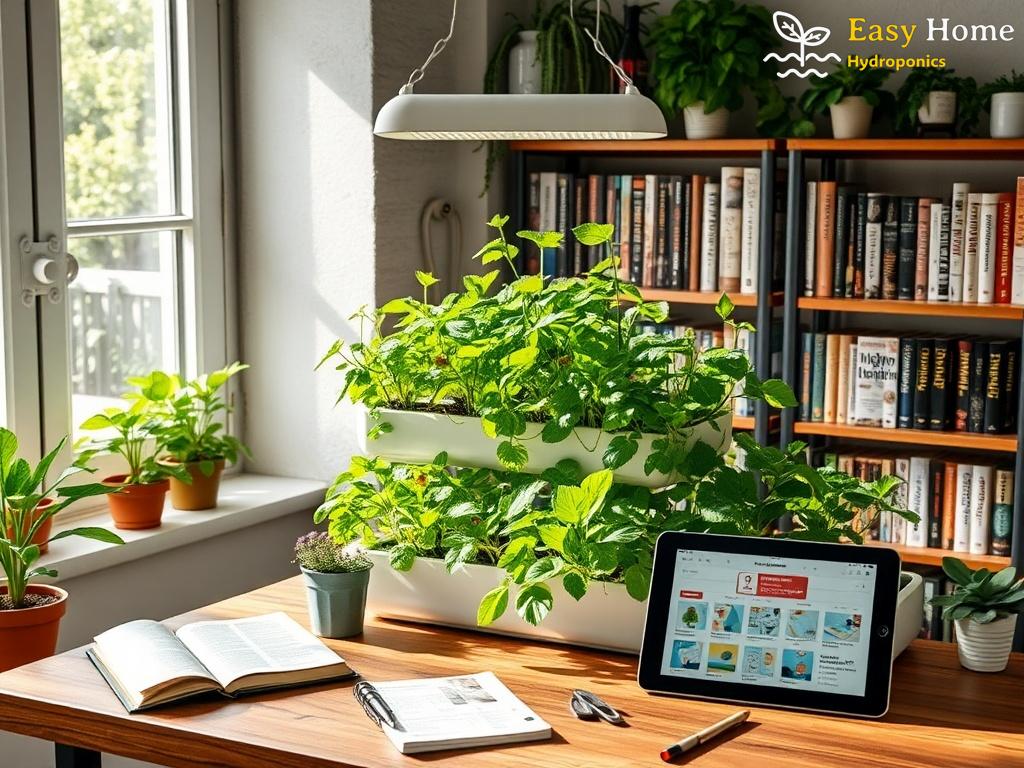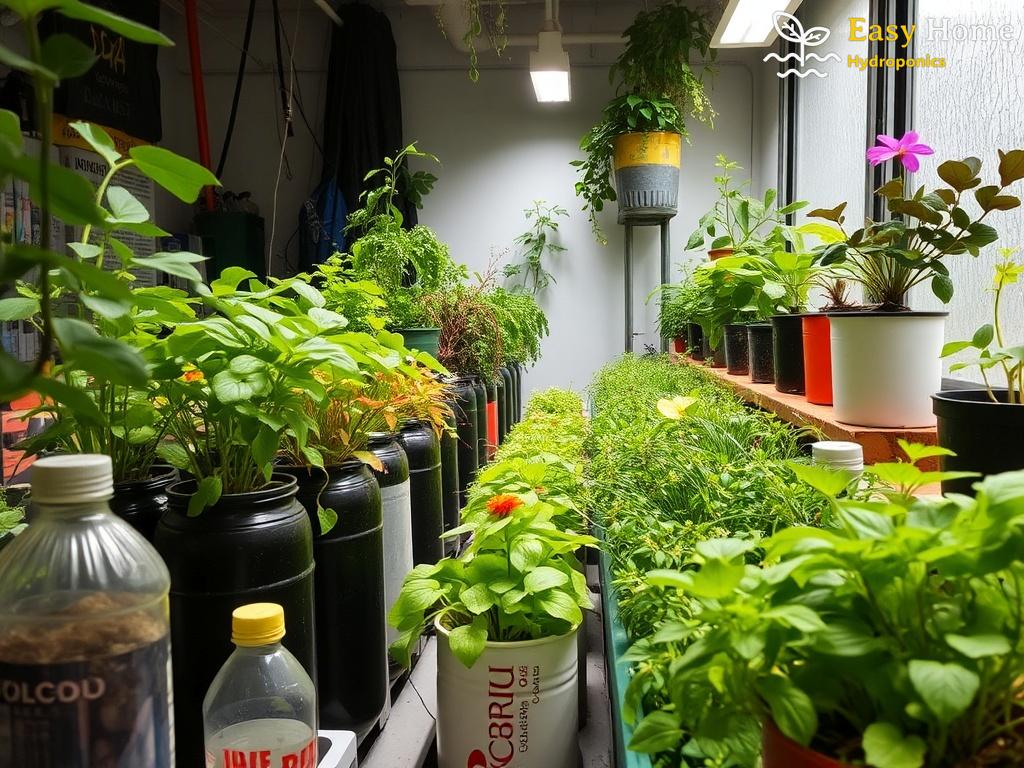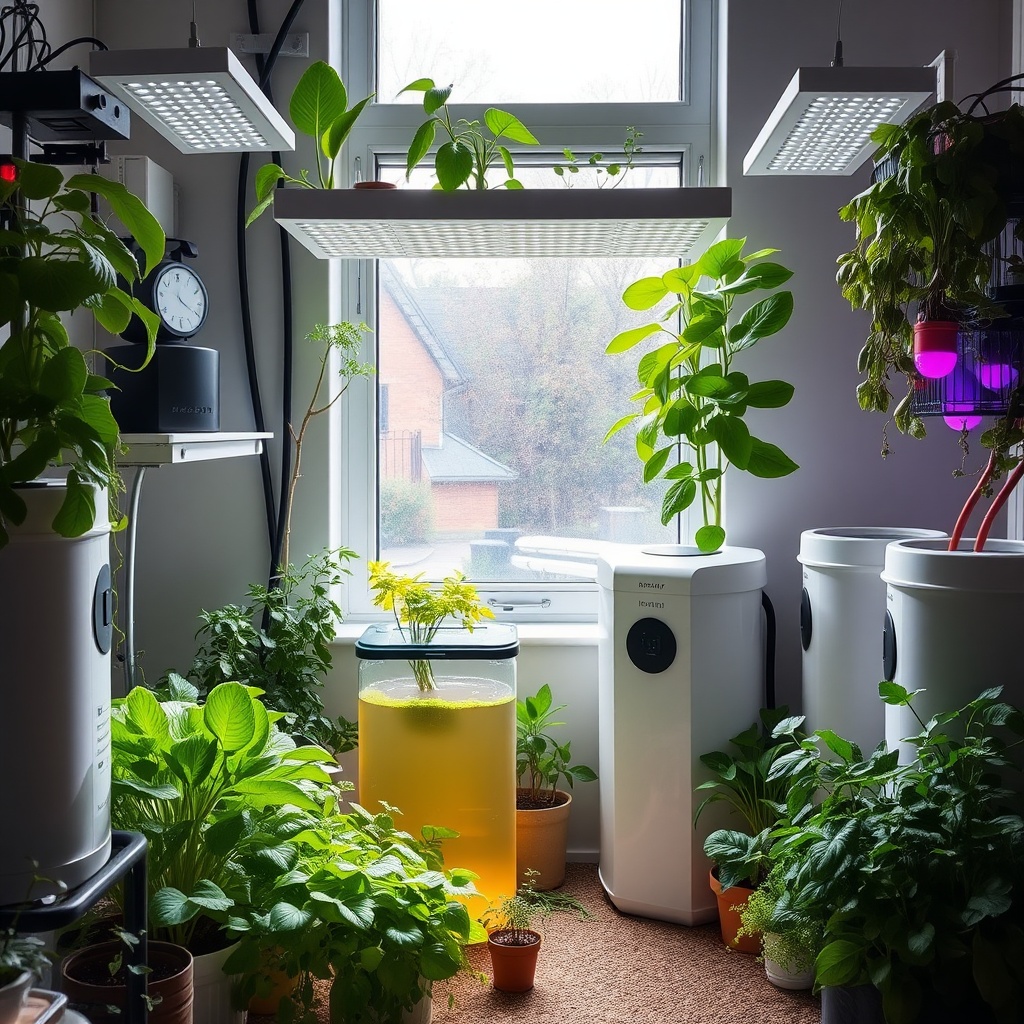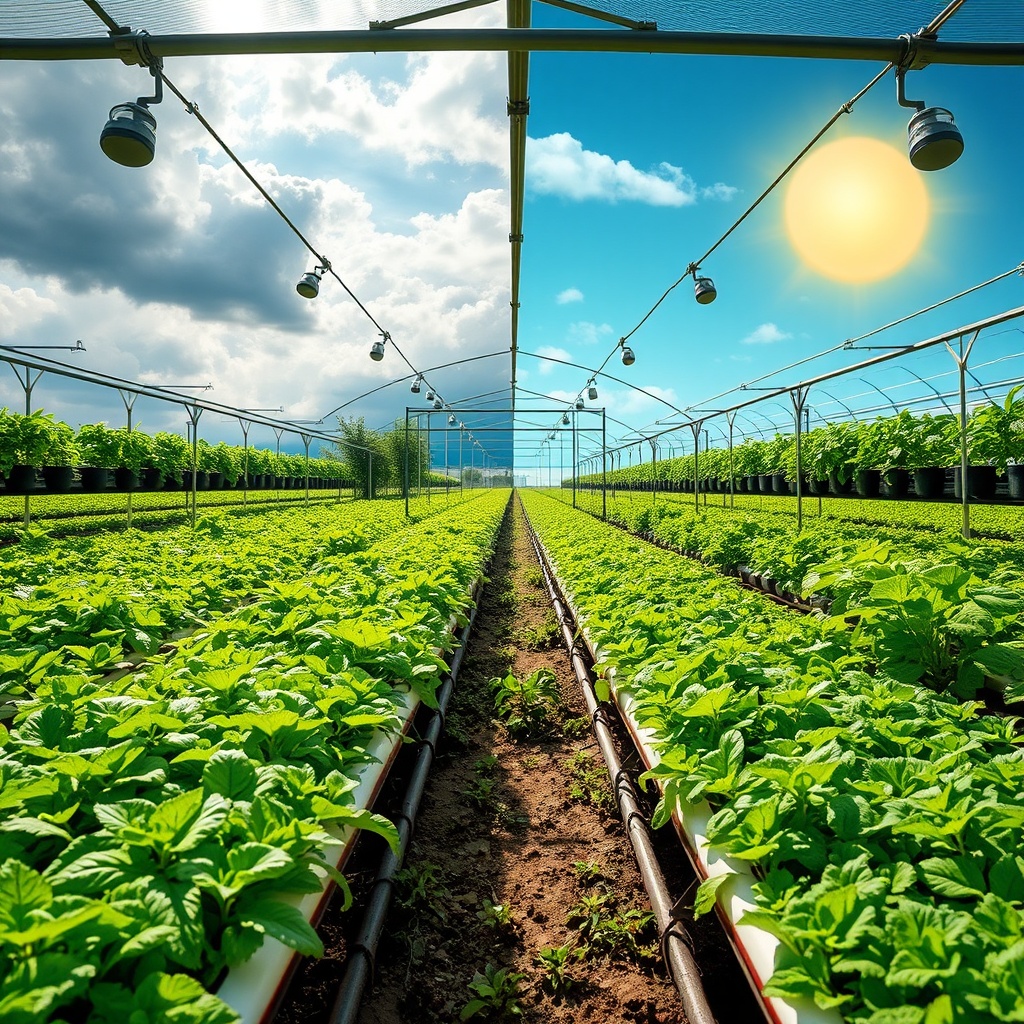Unlocking the Secrets of Hydroponics
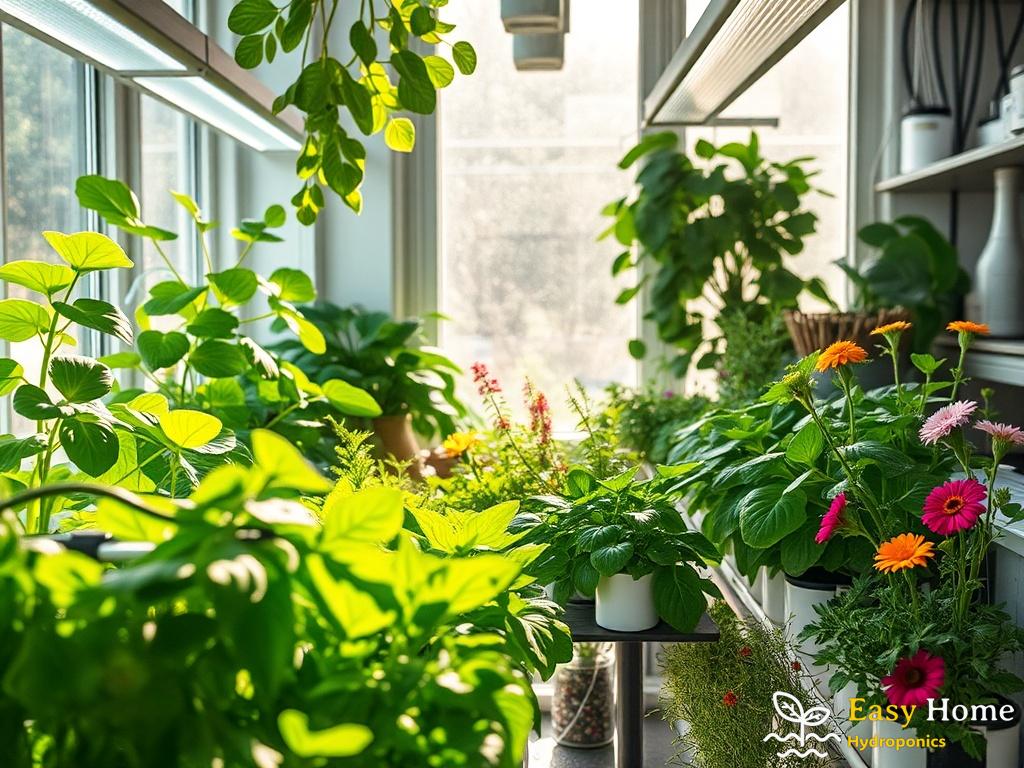
Discovering the Hydroponic Revolution
In recent years, the world has witnessed a remarkable shift towards sustainable and innovative gardening practices. Hydroponics, the method of growing plants without soil, has captured the imagination of both seasoned gardeners and curious newcomers alike. As urbanization and climate change challenge traditional farming techniques, the quest for efficient, space-saving solutions has led to an explosion in the popularity of hydroponic gardening. This surge has not only transformed how we grow food but has also ignited a burgeoning demand for knowledgeable resources.
Why Hydroponics? The Benefits Unveiled
For those contemplating diving into the world of hydroponics, understanding its multifaceted benefits is essential. Hydroponic gardening offers a myriad of advantages that make it an attractive option for modern gardeners. Here’s a brief overview of the key benefits:
- Space Efficiency: Hydroponics allows for high-density planting, making it ideal for urban environments where space is at a premium.
- Water Conservation: This method uses up to 90% less water compared to traditional soil gardening, making it a sustainable choice.
- Faster Growth Rates: Plants grown hydroponically can grow up to 50% faster than those in soil due to optimal nutrient delivery.
- Reduced Pest Issues: The controlled environment minimizes the occurrence of pests and diseases, resulting in healthier plants.
- Year-Round Gardening: Hydroponics enables gardeners to cultivate crops year-round, regardless of external weather conditions.
Essential Resources for Hydroponic Success
As interest in hydroponics continues to swell, the demand for quality books and resources has soared. Enthusiasts are eager to unlock the secrets of hydroponic gardening, seeking comprehensive guides that cover everything from beginner tips to advanced techniques. Here’s a table showcasing some of the most sought-after hydroponic gardening books:
| Title | Author | Key Focus |
|---|---|---|
| The Hydroponic Bible | J. D. Smith | A complete guide for beginners and experts alike. |
| Hydroponics for Everyone | Lisa Green | Simple techniques and DIY projects for home gardeners. |
| Advanced Hydroponic Techniques | Tommy Lee | In-depth exploration of complex hydroponic systems. |
These resources not only provide essential knowledge but also inspire creativity and experimentation in hydroponic gardening. As readers dive into these texts, they will discover the exciting possibilities that hydroponics presents, transforming their relationship with food production.
Top Resources for Aspiring Hydroponic Gardeners
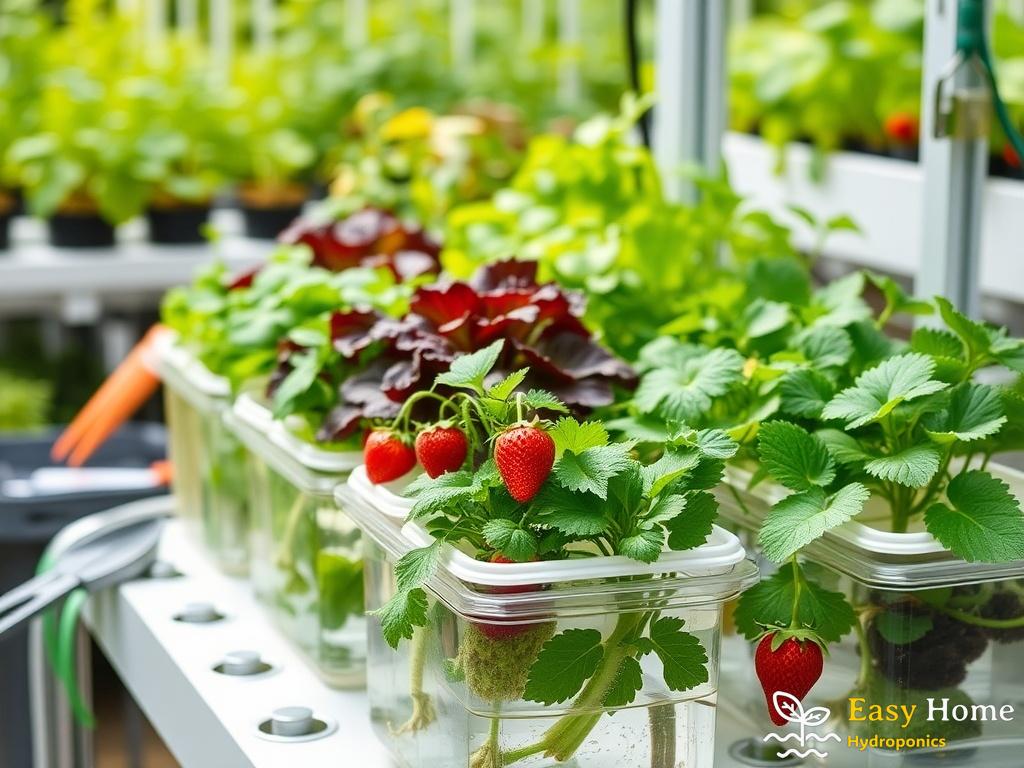
As the interest in hydroponic gardening continues to flourish, aspiring gardeners are not just looking for ways to grow plants; they are on a quest for knowledge, innovation, and inspiration. With a plethora of resources available, it can be overwhelming to identify which materials are truly beneficial for both beginners and seasoned enthusiasts. Fortunately, a selection of quality books and online platforms stands out, providing invaluable insights into the art of hydroponics.
Books That Cultivate Knowledge
Books remain a cornerstone for anyone diving into hydroponics. They offer structured learning, expert tips, and practical advice that are crucial for successful gardening. Here are some top picks that aspiring hydroponic gardeners should consider:
- The Hydroponic Gardener’s Handbook – This comprehensive guide covers everything from basic principles to advanced methods, making it suitable for all skill levels.
- Hydroponics Made Simple – An accessible approach to hydroponic gardening that demystifies complex concepts and provides hands-on projects.
- Urban Hydroponics – Focused on small spaces, this book offers solutions specifically tailored for city dwellers looking to grow food in limited areas.
Online Learning Platforms and Communities
The digital age has revolutionized how we access information, and aspiring hydroponic gardeners can benefit from a wide array of online resources. Websites, forums, and social media groups have emerged as valuable platforms for sharing experiences and knowledge. Here are some notable mentions:
- Hydroponics University – An online platform that provides courses ranging from beginner to expert levels, complete with video tutorials and community support.
- Reddit’s Hydroponics Community – A vibrant forum where enthusiasts share tips, ask questions, and showcase their progress, fostering a sense of camaraderie.
- YouTube Channels – Numerous channels dedicated to hydroponics offer visual tutorials, troubleshooting tips, and innovative project ideas that can inspire creativity.
In an era where sustainable practices are more important than ever, hydroponic gardening emerges as a beacon of innovation. By tapping into the right resources, aspiring gardeners can cultivate their skills, nurture their plants, and perhaps even contribute to a more sustainable future.
The Rise of Hydroponic Gardening Communities
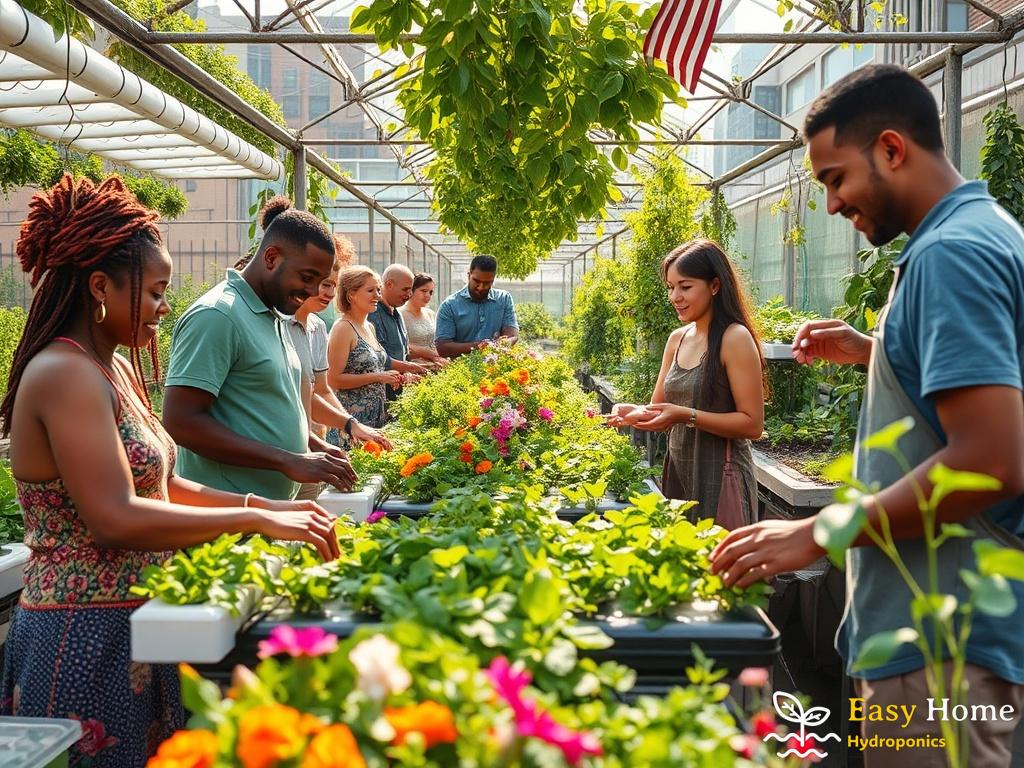
The world of hydroponic gardening is not just about the plants; it’s also about the vibrant communities that are springing up around this innovative method of cultivation. With the surge in interest for hydroponics, enthusiasts are finding more than just a hobby; they are discovering a shared passion that transcends geographic boundaries. These communities are proving to be invaluable resources for both newcomers and seasoned gardeners alike, offering a platform for knowledge exchange, support, and inspiration.
Unity in Diversity is a hallmark of these hydroponic communities. From local gardening clubs to global online forums, individuals gather to share their experiences, tips, and techniques. This collective knowledge is particularly beneficial for beginners who may feel overwhelmed by the intricacies of hydroponic systems. Engaging with others allows members to ask questions, troubleshoot issues, and learn from the successes—and failures—of fellow gardeners. The richness of diverse perspectives fosters a culture of collaboration, where traditional gardening wisdom meets modern innovations.
Empowerment Through Education is another significant aspect of these communities. Many groups organize workshops, webinars, and meet-ups that focus on various aspects of hydroponic gardening, from basic setup to advanced nutrient management. Such educational initiatives are crucial in demystifying the process and empowering individuals to take the plunge into hydroponics. As a result, participants not only enhance their own gardening skills but also contribute to a growing body of knowledge that benefits the entire community. The sense of empowerment extends beyond gardening techniques; it cultivates confidence, encouraging members to experiment and find their unique gardening styles.
Additionally, the social aspect of these communities cannot be overlooked. The camaraderie that develops among members creates a supportive environment where individuals come together to celebrate successes, share harvests, and even exchange seeds or plants. These personal connections often lead to lifelong friendships, transforming the solitary act of gardening into a shared journey of discovery and growth. As hydroponics continues to gain traction, these communities will undoubtedly play a pivotal role in shaping the future of sustainable gardening practices.
Essential Techniques for Successful Hydroponic Growth
Mastering the Fundamentals of Hydroponic Systems
For anyone delving into the realm of hydroponic gardening, grasping the fundamental techniques that underpin successful growth is paramount. These techniques are not merely tricks of the trade; they form the very backbone of a thriving hydroponic system. Understanding the intricacies of nutrient solution management, light requirements, and environmental control can dramatically impact plant health and yield. Each element plays a critical role, and a failure to acknowledge their importance can lead to disappointing results.
Creating the Perfect Nutrient Solution
The nutrient solution is the lifeblood of hydroponic gardening, providing essential minerals and elements that plants crave. Crafting an optimal nutrient mix requires a keen understanding of the growth stages of the plants being cultivated. During the vegetative phase, plants typically need higher nitrogen levels, while flowering varieties benefit from increased phosphorus and potassium. Achieving the right balance is not only about mixing the correct ratios but also about monitoring pH levels, as this affects nutrient absorption. Regular testing and adjustments will ensure your plants receive the nourishment they require for robust growth.
Harnessing Light for Maximum Growth Potential
Light is an often underestimated factor in hydroponic gardening, yet it is vital for photosynthesis and overall plant vitality. Hydroponic gardeners must mimic natural light conditions as closely as possible, utilizing full-spectrum LED or fluorescent grow lights to provide the necessary wavelengths. Timing is equally important; plants require specific light cycles that can enhance growth, flowering, and fruiting. By setting the right duration and intensity of light exposure, gardeners can create an environment that promotes healthy, rapid growth. Moreover, understanding the unique light needs of different plant species can lead to a more productive garden.
Future Trends in Hydroponic Literature
Innovative Approaches to Hydroponic Literature
As the interest in hydroponic gardening continues to blossom, the literature surrounding this method is evolving to meet the demands of a diverse audience. Enthusiasts are no longer just seeking basic guides; they are looking for innovative approaches that delve deeper into specific techniques, technologies, and applications. This shift in demand is paving the way for an exciting array of hydroponic literature that promises to enrich the gardening experience.
Integration of Technology in Hydroponic Resources
The future of hydroponic literature is set to embrace the integration of technology, making it more interactive and engaging than ever before. Authors are beginning to incorporate augmented reality (AR) and virtual reality (VR) elements into their books, allowing readers to visualize complex systems or walkthrough setups in real-time. This immersive experience not only enhances understanding but also encourages hands-on experimentation. Furthermore, we can anticipate the rise of companion apps that accompany hydroponic books, providing readers with tools for tracking their plant growth, managing nutrient solutions, and troubleshooting issues.
Community-Driven Publications and Collaborative Learning
In a world where community and collaboration are increasingly valued, future hydroponic literature will likely reflect this trend. We can expect to see more community-driven publications that compile insights and experiences from diverse gardeners. These collaborative works will highlight real-life success stories, common challenges, and innovative solutions derived from collective wisdom. Additionally, platforms that facilitate peer-to-peer learning will gain traction, where experienced gardeners share their expertise through workshops, webinars, and online forums, creating a rich tapestry of knowledge accessible to all.
Key Trends to Watch in Hydroponic Literature:
- Interactive Formats: Books that leverage AR and VR technologies for enhanced learning.
- Companion Apps: Additional digital resources that support readers in their gardening journeys.
- Collaborative Publications: Community-driven books featuring contributions from a diverse range of hydroponic enthusiasts.
As the world of hydroponic gardening continues to flourish, the literature that supports it is evolving in fascinating ways. By embracing technology and collaboration, authors are not only enhancing the learning experience but also fostering a sense of community among gardeners. This dynamic shift promises to keep hydroponics at the forefront of sustainable gardening practices and inspire future generations of green thumbs.

